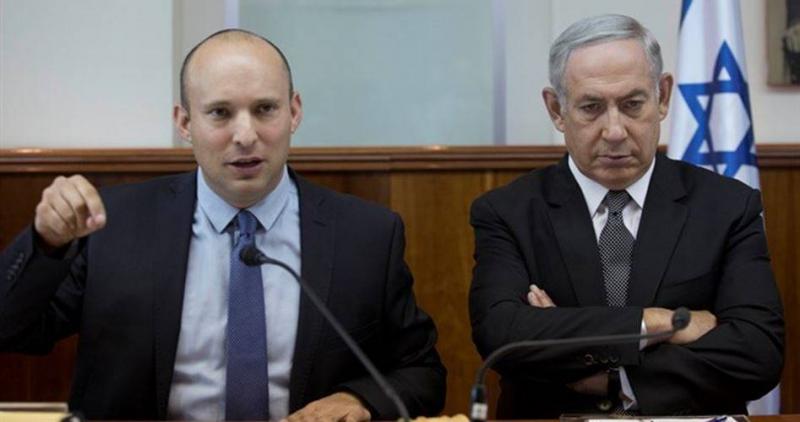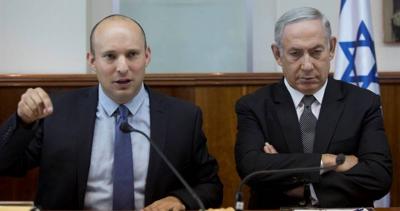Israeli Prime Minister Benjamin Netanyahu’s opponents continued their negotiations overnight to reach an agreement by midnight Wednesday on a new government aimed at ushering in a "new era" and ending a political crisis that has lasted over two years. The lengthy discussions continued late into the night on Tuesday and Wednesday as the deadline set by the presidency for forming the coalition government loomed at 23:59 (20:59 UTC) Wednesday.
Participating in the negotiations are the main leaders from the left, the center, and part of the right, including the right-wing Yamina party led by far-right leader Naftali Bennett, who is a candidate for the premiership in a power-sharing arrangement. Yamina stated in a statement that the leaders of the main factions met with centrist opposition leader Yair Lapid "in an attempt to reach an agreement."
A source close to the talks told AFP late Tuesday that "everyone is working hard to reach a final agreement as soon as possible." Mansour Abbas, leader of the Arab Israeli Islamic Movement (represented by four lawmakers), stated upon arriving at the meeting, "We are heading in the right direction." He added, "As long as it’s not over, nothing is over."
All eyes are on this formation and the other Arab Israeli party, the United List, as the anti-Netanyahu bloc needs just four more lawmakers to reach the 61-seat threshold required to form a government. Abbas declared that he is willing to negotiate with anyone wanting to serve the interests of the Arab Israeli community (20% of Israel's population).
Yair Lapid, who was tasked by President Reuven Rivlin in early May with forming a coalition after Netanyahu's failure, has until midnight Wednesday to present a draft agreement for a "national unity government." He must overcome the divisions and ministerial demands of various parties, especially regarding the highly sought-after defense or justice portfolios.
Many Obstacles
Lapid stated on Monday, "There are still many obstacles to forming a government." He added, "This is our first test to see if we can find smart compromises," affirming that "Israel could find itself next week in a new era." From the current situation in the Israeli-Palestinian conflict to economic recovery and the status of religion, all these issues on paper evoke division in the diverse anti-Netanyahu coalition, except for their mutual desire to oust the Prime Minister, who has held office for 25 years, first from 1996 to 1999, and then re-elected in 2009.
Netanyahu is facing corruption charges in three cases, making him the first Israeli Prime Minister to face criminal prosecution while in office. If he leaves power, he will become a simple deputy and will not be able to use his influence to try to pass a law protecting him from his legal troubles.
Should Lapid announce an agreement before midnight Wednesday, he would have seven days to distribute the portfolios and gain parliamentary confidence. During this time, anything is possible. Netanyahu and his right-wing Likud party, along with his lawyers, are moving to prevent a potential coalition agreement.
Defections
Israeli media reported that Knesset Speaker Yariv Levin of the Likud party may lean towards delaying a vote for parliamentary confidence in the hope of resulting defections within the anti-Netanyahu bloc.
In another sign of tension, Likud's lawyers turned to the Israeli presidency to raise a constitutional question regarding the power-sharing plan proposed by Lapid. A text reviewed by AFP indicated that the presidency dismissed the legal issue and confirmed that Bennett could assume premiership first.
In this atmosphere of heightened tension, where Netanyahu supporters might consider a potential government deal as "treason," security measures for Lapid and Bennett have been intensified, according to their parties. If Lapid fails to form a government before the deadline, lawmakers could request the president to task another deputy. Otherwise, voters would return to the polls for the fifth time in just over two years.




